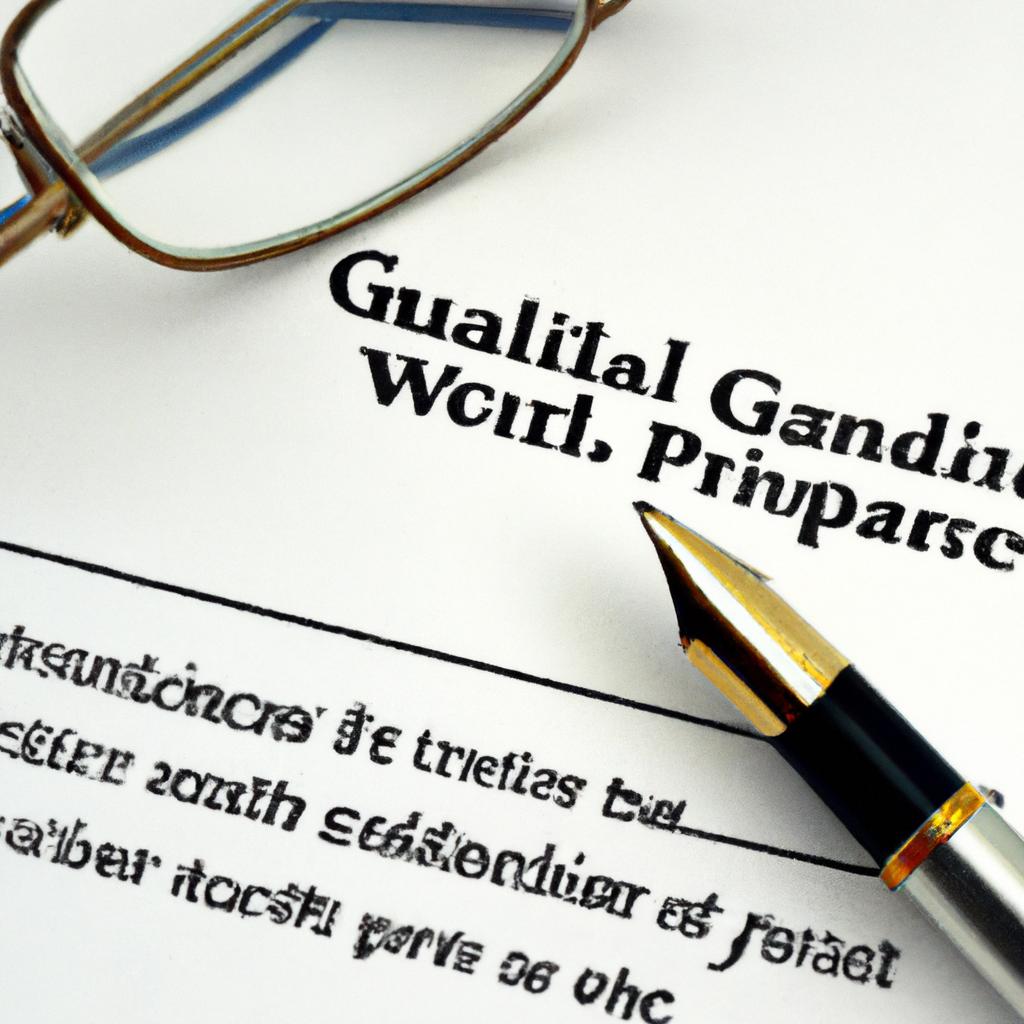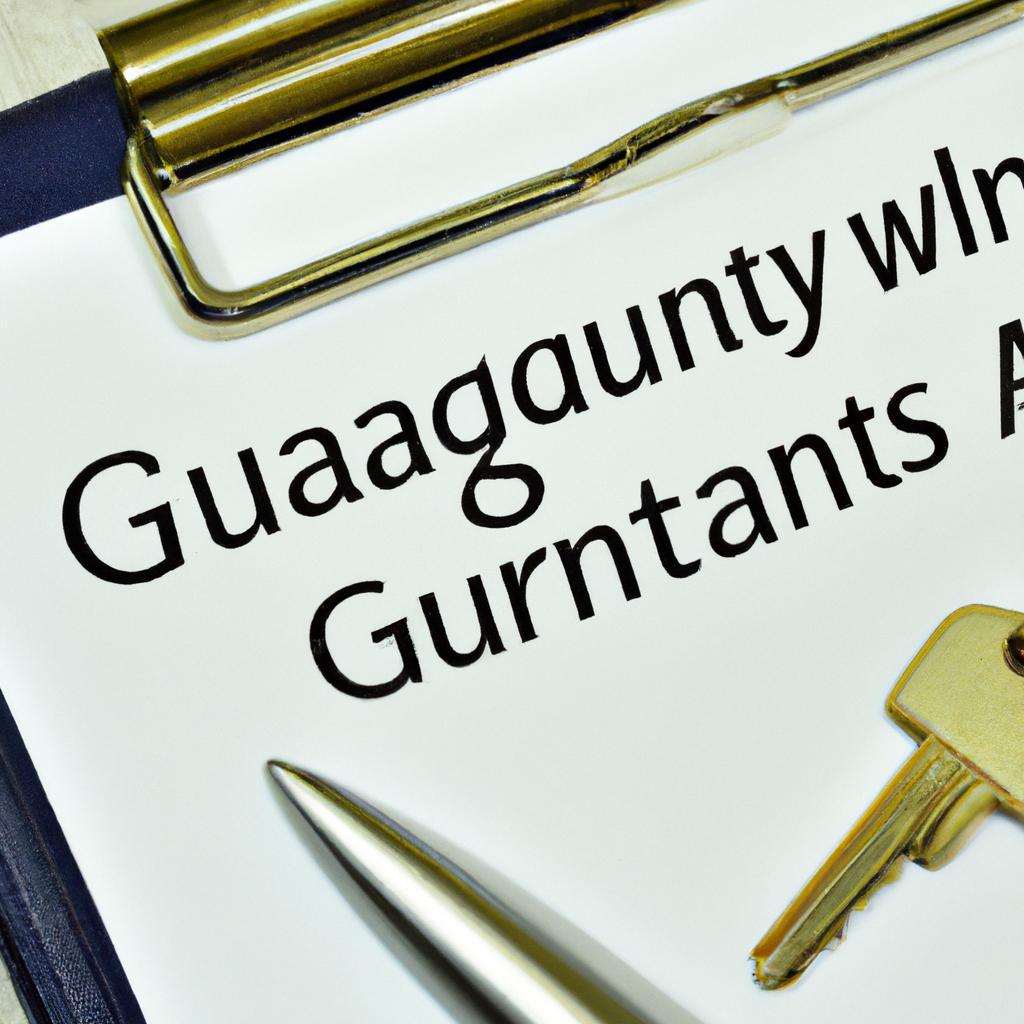In the intricate realm of estate planning, the question often arises: does guardianship override a will? As seasoned legal professionals at Morgan Legal Group in the bustling metropolis of New York City, we navigate the complexities of guardianship, wills, and trusts with precision and expertise. Join us as we dissect the interplay between guardianship and testamentary documents to provide clarity on this pertinent issue.
Understanding the Role of Guardianship in Estate Planning
In estate planning, the role of guardianship is a crucial aspect to consider when determining the future care and well-being of minor children or incapacitated adults. While a will allows individuals to outline their wishes for the distribution of assets and the appointment of heirs, guardianship addresses who will have legal responsibility for a person’s care and decision-making in the event of their incapacity or death. Understanding the relationship between guardianship and a will is essential for creating a comprehensive estate plan that ensures the protection and welfare of loved ones.
It is important to note that guardianship does not necessarily override a will, as both legal mechanisms serve distinct purposes in estate planning. A will can designate a guardian for minor children or incapacitated adults, but it is ultimately up to the court to appoint the guardian based on the best interests of the ward. In some cases, a court may choose to override the guardian designated in a will if it determines that another individual is better suited to fulfill the responsibilities of care and decision-making. Therefore, consulting with an experienced estate planning attorney can help individuals navigate the complexities of guardianship and ensure that their wishes are properly documented and legally enforceable.

Analyzing the Interplay Between Guardianship and a Will
When it comes to estate planning, one of the key considerations is the interplay between guardianship and a will. Many individuals wonder whether guardianship can override a will, leading to confusion and uncertainty surrounding their final wishes. It is important to understand the legal implications of both guardianship and a will to ensure that your wishes are carried out as you intended.
Guardianship and a will serve different purposes in estate planning. While a will outlines how your assets should be distributed after your passing, guardianship appoints someone to make decisions on your behalf if you become incapacitated. It is important to note that a will does not automatically override guardianship, as both serve distinct roles in ensuring your wishes are honored. To navigate the complexities of guardianship and a will, it is crucial to consult with an experienced attorney who specializes in estate planning and probate law.

Key Considerations When Appointing Guardians in Your Will
Given the complexities surrounding the appointment of guardians in a will, it is essential to carefully consider various key factors to ensure that your wishes are followed through effectively. When appointing guardians in your will, it is crucial to take into account the following considerations:
- Relationship to the child: It is important to choose a guardian who has a close and loving relationship with your child to ensure their well-being and happiness.
- Financial stability: Selecting a guardian who is financially stable and capable of providing for your child’s needs is crucial in safeguarding their future.
Additionally, it is vital to communicate your wishes clearly and openly with both the chosen guardian and your family members to prevent any potential misunderstandings or disputes in the future. By addressing these , you can rest assured that your child will be in capable hands should the need arise.
| Guardian | Relationship to Child | Financial Stability |
|---|---|---|
| John Smith | Family Friend | Stable |
| Amy Johnson | Aunt | Financially Secure |

Recommendations for Ensuring Consistency Between Guardianship Designations and Testamentary Wishes
When it comes to the important decisions of appointing guardians for minor children in your will and ensuring consistency between these designations and testamentary wishes, many clients often ask: does guardianship override a will? The short answer is no, guardianship designations in a will do not necessarily override a court-appointed guardian, but they can provide important guidance for the court in making its decision.
It is crucial to carefully consider your choices for guardianship in both your will and any other legal documents to ensure that your wishes are clear and consistent. By discussing your intentions with an experienced attorney specializing in estate planning and guardianship matters, such as Morgan Legal Group in New York City, you can create a comprehensive plan that reflects your values and priorities for the care of your children in the event of your incapacity or passing.
Q&A
Q: Can guardianship override a will?
A: In some cases, guardianship can indeed override a will.
Q: How does this happen?
A: When a person becomes incapacitated and unable to manage their own affairs, a court may appoint a guardian to make decisions on their behalf. This guardian can make decisions that may conflict with the wishes outlined in the person’s will.
Q: What happens to the will in this situation?
A: The guardian has the legal authority to make decisions for the incapacitated person, so their decisions can supersede any instructions laid out in the will.
Q: Is there a way to prevent guardianship from overriding a will?
A: One way to prevent guardianship from overriding a will is to establish a durable power of attorney and healthcare proxy before becoming incapacitated. This allows you to choose who will make decisions on your behalf if you are unable to do so.
Q: What should people keep in mind when considering guardianship and wills?
A: It is important to carefully plan for the future and ensure that your wishes are clearly stated in legal documents. Consulting with an attorney who specializes in estate planning can help you navigate the complexities of guardianship and wills.
The Conclusion
In conclusion, while guardianship can bring about certain limitations in terms of the decision-making power of the ward, it does not necessarily override a legally valid will. It is important to seek legal advice and guidance to ensure that the wishes of the deceased are carried out as intended. Ultimately, understanding the complexities of guardianship and estate planning can help navigate the legal landscape with clarity and peace of mind. Thank you for joining us on this exploration of the intersection between guardianship and wills.
 The concept of guardianship and wills is one that is often misunderstood or confusing for many individuals. It can be challenging to navigate the legal implications surrounding these topics, especially when it comes to how they may interact with one another. One common question that arises is, “does guardianship override a will?” The answer is not a simple yes or no, as it depends on the specifics of each situation. In this comprehensive article, we will explore the relationship between guardianship and wills, the factors that determine which takes precedence, and what individuals can do to protect their wishes in the event of incapacity.
The concept of guardianship and wills is one that is often misunderstood or confusing for many individuals. It can be challenging to navigate the legal implications surrounding these topics, especially when it comes to how they may interact with one another. One common question that arises is, “does guardianship override a will?” The answer is not a simple yes or no, as it depends on the specifics of each situation. In this comprehensive article, we will explore the relationship between guardianship and wills, the factors that determine which takes precedence, and what individuals can do to protect their wishes in the event of incapacity.
Understanding Guardianship and Wills
Before delving into the question at hand, it is essential to understand the basics of guardianship and wills. A will is a legal document that outlines an individual’s wishes for the distribution of their assets after their death. It also names an executor, who is responsible for carrying out these wishes. On the other hand, guardianship is a legal relationship in which one person (the guardian) is appointed to make decisions for another person (the ward) who is deemed incapacitated or unable to make decisions for themselves. The guardian is typically responsible for the care and well-being of the ward, including managing their financial affairs.
Relationship Between Guardianship and Wills
In most cases, a person will create a will at some point in their life, often indicating who they want to be their guardian in the event they become incapacitated. This person is known as the “guardian designated in a last will and testament.” However, if a person becomes incapacitated and did not designate a guardian in their will, the court will step in and appoint someone to fill this role. This appointed guardian may not be who the individual would have chosen.
When it comes to the question of whether guardianship overrides a will, the answer lies in the timing of events. If a person becomes incapacitated and had previously created a will designating a guardian, that person will typically have priority over any court-appointed guardian. However, if the person becomes incapacitated and had not designated a guardian in their will, the court-appointed guardian will have precedence over any individuals named in the will.
Factors That Determine Which Takes Precedence
The primary factor that determines whether guardianship or a will takes precedence is the timing of events. However, there are other essential considerations to keep in mind. These include the type of guardianship, the specific powers granted to the guardian, and any provisions outlined in the will.
Types of Guardianship
There are different types of guardianship, including limited and plenary guardianship. Limited guardianship grants the guardian authority over specific aspects of the ward’s life, such as their healthcare decisions. On the other hand, plenary guardianship gives the guardian complete control over all aspects of the ward’s life. Depending on the type of guardianship, the will may or may not be able to override it. For example, if the will designates a person as a guardian for financial matters, but the court-appointed a plenary guardian, the plenary guardian’s powers would likely override the designation in the will.
Specific Powers Granted to the Guardian
In some cases, a guardian may have limitations on their powers, as outlined in the court’s guardianship order. For instance, if the court grants a limited guardianship for healthcare decisions only, the designated guardian would not have authority over financial matters, even if the will designates them as such. In this case, the will would not override the court’s limitations on the guardian’s powers.
Provisions Outlined in the Will
Another factor that can determine whether guardianship overrides a will is the specific provisions outlined in the will. For instance, if the will contains a provision that states any guardianship orders in place will not be affected, then the court-appointed guardian would not override the designated guardian named in the will. It is essential to carefully review the provisions in your will to ensure they align with your desired outcome in the event of incapacity.
Protecting Your Wishes in the Event of Incapacity
While the laws surrounding guardianship and wills may seem complicated, there are steps individuals can take to protect their wishes in the event of incapacity. One way to do this is to create a comprehensive estate plan that includes a durable power of attorney and a living trust. A durable power of attorney designates someone to make financial decisions on your behalf if you become incapacitated. A living trust, on the other hand, allows your assets to be managed by a trustee of your choosing if you become incapacitated, avoiding the need for guardianship altogether. Reviewing and updating these documents regularly is crucial to ensuring they reflect your current wishes and protect your interests.
The Importance of Seeking Legal Counsel
Given the complex and potentially contentious nature of guardianship and wills, it is essential to seek legal counsel to ensure your wishes are protected. An experienced estate planning attorney can assist you in creating a comprehensive estate plan that covers all eventualities and provide guidance on navigating the intersection between guardianship and wills.
In conclusion, does guardianship override a will? As we have explored, the answer is not a straightforward one. The timing of events, the type of guardianship, the specific powers granted to the guardian, and the provisions outlined in the will all play a role in determining which takes precedence. It is crucial to understand these factors and take the necessary steps to protect your wishes in the event of incapacity. Seeking legal counsel and regularly reviewing and updating your estate plan can help ensure your wishes are carried out according to your desires.

